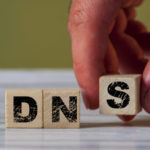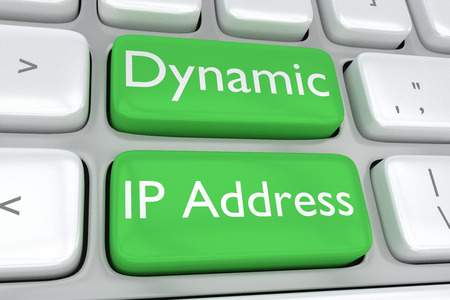A VPN (Virtual Private Network) helps you browse the internet with more safety, privacy, and freedom. Instead of leaving your activity open to tracking by websites, internet providers, or hackers, it protects your connection with strong encryption.
This technology isn’t just for tech experts. More and more everyday users rely on it to secure online banking, keep personal data private, and even unlock content from other countries. A reliable VPN makes the online world a safer and more open place.
Table of Contents
VPN (Virtual Private Network) Meaning
A VPN (Virtual Private Network) is a service that protects your online activity by creating a secure, private connection between your device and the internet. Think of it as a hidden tunnel where all your data travels safely.
Normally, when you visit a website, your request goes directly through your internet provider. They can see your real IP address (IPv4 and IPv6) and the sites you access. With a VPN, your traffic is encrypted and sent through a remote server first. The websites you visit only see the IP address of the remote server, not yours.
This simple change gives you three major benefits: better privacy, stronger security, and the ability to appear as if you are browsing from another country.
Who Needs a VPN?
You might think private browsing is only for tech experts, but the truth is almost anyone can benefit from using a VPN (Virtual Private Network). Online privacy and security have become important for everyday life, no matter where or how you connect.
Here are some common groups of people who often use this tool:
- Remote workers: When you work from home or on the road, your company may require you to use a secure connection. A VPN ensures sensitive business data is protected, even if you connect through public Wi-Fi.
- Travelers: Many people discover that when they leave their home country, their favorite websites or streaming platforms stop working. By connecting through a server back home, you can keep access to the content you normally use.
- Online shoppers: Prices for flights, hotels, or even digital products often change depending on your location. By switching your connection to a different region, you can sometimes find better deals and avoid unfair price discrimination.
- Gamers: Online gaming can expose players to targeted attacks or high latency. By masking your IP address and rerouting your traffic, you can avoid DDoS attacks and sometimes improve your gaming speed.
- Privacy-conscious users: Every website you visit collects data about your activity. Advertisers build detailed profiles about your behavior. Using a secure tunnel helps prevent constant tracking and gives you more control over your digital footprint.
- People living under restrictions: In some regions, governments or internet providers block access to popular apps and websites. With a secure connection, users can bypass censorship and communicate freely.
Ultimately, if you use the internet, whether it’s for work or entertainment, you’ll benefit from having a VPN in place.
How Does a VPN (Virtual Private Network) Work?
At its core, a VPN (Virtual Private Network) works by creating an encrypted connection, often called a tunnel, between your device and a secure server operated by the VPN provider. Instead of your internet traffic passing directly through your internet service provider (ISP), it is rerouted through this protected tunnel.
Here’s what happens in practice:
- You open your VPN application and select a server in a location of your choice.
- The software establishes a connection using tunneling protocols such as OpenVPN, IKEv2/IPSec, or WireGuard. These protocols define how your data is wrapped, encrypted, and transmitted.
- All of your browsing traffic, DNS requests, and online activity are encrypted before leaving your device.
- The VPN server replaces your real IP address with its own, effectively masking your identity.
- The website or service you access sees only the VPN server’s details, not your personal ones.
The entire process happens within milliseconds. While you experience a normal browsing session, your data is protected by advanced encryption algorithms (commonly AES-256). This ensures that even if someone intercepts your traffic, say, on public Wi-Fi, they would see nothing but unreadable code.
Besides encryption, IP masking plays a crucial role. By hiding your true IP address, you prevent tracking of your online behavior. Combined with secure DNS resolution, this makes your browsing much more private and resilient.
Experience Industry-Leading DNS Speed with ClouDNS!
Ready for ultra-fast DNS service? Click to register and see the difference!
How to Get a VPN (Virtual Private Network)
Getting started with a VPN (Virtual Private Network) is much easier than most people think. You don’t need special technical skills, just a few simple steps.
- Choose a provider. Look for a reliable service that offers strong encryption, a no-logs policy, and a wide selection of servers around the world. Paid services are usually faster and more secure than free ones.
- Select a subscription plan. Most providers offer flexible options on a monthly, yearly, or multi-year basis. Longer plans often come with significant discounts.
- Download the app. VPN services usually provide apps for all major platforms: Windows, macOS, Linux, Android, and iOS. Many also support routers, smart TVs, and even gaming consoles. For Apple users, choosing the right VPN for Mac is the first step toward security.
- Install and log in. Follow the installation instructions, then sign in with the credentials you created during registration.
- Connect to a server. Open the app, pick a location, and click “connect.” Within seconds, your internet traffic will be routed securely through the chosen server.
With just a few clicks, you’ll have a working VPN ready to protect your everyday internet use.
How to Use It
Once you have set up a VPN (Virtual Private Network), actually using it is very simple. After installing the app and signing in, you just open it and press the “connect” button. By default, the app links you to the fastest server available, giving you privacy without slowing down your connection.
If you want to appear as if you are browsing from another country, you can manually select a server from the list provided by your VPN service and reconnect. Switching locations is quick, and it works the same way whether you are on a phone, computer, or tablet.
Most providers also allow you to adjust settings to meet your specific needs. You can set the app to start automatically with your device, which means you are always protected as soon as you go online. Some apps offer split tunneling, which lets you decide which programs or browsers use the VPN connection and which use your regular internet. This is useful if you only want to protect certain activities while keeping others on a direct connection.
In everyday use, it comes down to three steps: open the app, connect, and browse safely.
How to Check if a VPN Is Working
After you connect to a VPN (Virtual Private Network), it’s a good idea to verify that it’s actually functioning as intended. There are a few simple ways to check:
- Verify your IP address. Visit an IP checking website before and after connecting. If the address changes to match your chosen server’s location, the VPN is active.
- Run a DNS leak test. Use a free tool online to make sure your DNS requests are routed through the VPN. If your internet provider still appears in the results, you may have a leak.
- Test with region-restricted content. Try accessing a streaming platform, video, or website that’s usually blocked in your country. If it works, the VPN is routing your traffic through the right location.
- Check connection speed. Some VPNs slightly reduce your speed. Running a speed test before and after connection can confirm if the secure tunnel is working as expected.
If any of these checks fail, look into your app’s settings or contact the provider’s support. A properly working VPN should always hide your real IP, protect your DNS queries, and keep your browsing private.
Conclusion
A VPN (Virtual Private Network) is a simple but powerful way to stay safe online. It hides your identity, protects your data, and gives you more freedom when browsing or streaming.
You don’t need to be a tech expert to use it. Just install the app, connect to a server, and you’re protected. In a world where tracking and cyber risks are everywhere, keeping a VPN active is one of the easiest habits for better online security.



